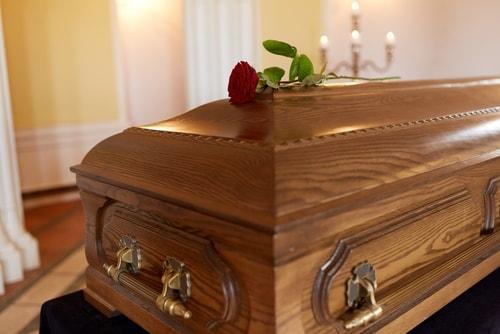33 N. Dearborn Street, Suite 1130, Chicago, IL 60602
5 Convenient Locations
Does a Social Security Disability Claim Die with the Applicant?
 As we have discussed many times before, it often takes many years for a disability applicant to receive a final decision from Social Security. And in many of those cases, there may be several years of additional appeals following a denial of disability benefits. During this lengthy period, many disability applicants, unfortunately, pass away. Under the law, the applicant's spouse, children, or other beneficiaries may continue to pursue the disability claim.
As we have discussed many times before, it often takes many years for a disability applicant to receive a final decision from Social Security. And in many of those cases, there may be several years of additional appeals following a denial of disability benefits. During this lengthy period, many disability applicants, unfortunately, pass away. Under the law, the applicant's spouse, children, or other beneficiaries may continue to pursue the disability claim.
Magistrate Rules Social Security Failed to Properly Justify Decision Denying Now-Deceased Woman Disability Benefits
Just recently, a federal judge here in Illinois ruled in favor of a widower who sought to reverse a Social Security decision denying his late wife's claim for disability benefits. The deceased injured her back in 2012 while working at a retail store. The injury was severe enough that she required surgery. But even then, she continued to suffer from chronic leg and back pain. This eventually led to her filing an application for disability benefits in 2014.
Following a 2016 hearing, a Social Security administrative law judge (ALJ) determined the deceased was not legally disabled. Despite her impairments, the ALJ said she could still perform “light work with certain restrictions.” The applicant died in 2017, so her husband appealed the ALJ's decision on her behalf.
A federal magistrate judge agreed with the husband that the ALJ's conclusion that the deceased could still have performed “light work” was not “supported by substantial evidence.” In particular, the magistrate took issue with the ALJ's finding that the deceased's description of her chronic pain and related symptoms was “not entirely consistent with the medical and other evidence of record.” Yet bizarrely the ALJ also stated, “I find claimant's alleged symptoms and limitations are generally consistent with the medical evidence of record.” These directly contradictory statements appeared only two sentences apart in the ALJ's opinion, the magistrate noted, with no explanation.
More to the point, the magistrate said finding the applicant's symptoms were “generally consistent” with the medical records “provides no insight” into her potential ability to perform light work with restrictions. The magistrate said the ALJ simply made “an unsubstantiated determination” in this regard. If the ALJ believed the deceased's testimony was not credible, the burden was on the ALJ to explain why. While the ALJ does need to go through every single statement made by the applicant regarding her symptoms, the ALJ must give proper consideration to all of the evidence and provide an “adequate explanation of why she determined [the deceased] could perform light duty work.” The ALJ failed to do this, so the magistrate returned the case to Social Security for a new hearing.
Contact a Chicago Social Security Disability Lawyer Today
Even when the original applicant is deceased, her family is still entitled to claim any previously owed Social Security disability benefits on her behalf. An experienced Cook County disability benefits lawyer can assist you and your family in dealing with Social Security and ensuring the agency follows the law. Contact Pearson Disability Law, LLC, at 312-999-0999 today to schedule a free consultation.
Source:
https://scholar.google.com/scholar_case?case=5407411905006637388






 312-999-0999
312-999-0999 312-999-8999
312-999-8999




